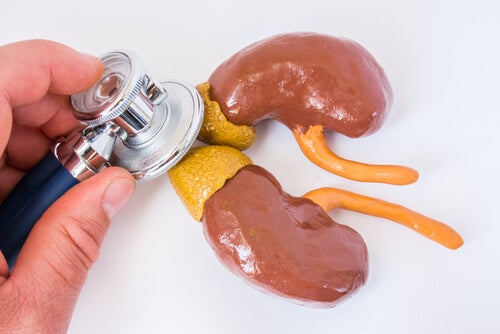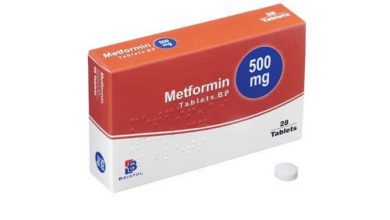Excess Cortisol: Everything You Need To Know

Do you know what excess cortisol is? Our human ancestors used this hormone surge to escape wild danger, but now the functions and role of stress have changed.
Cortisol is a hormone produced and secreted by glands located above each kidney, called adrenal or adrenal glands. When the body needs more energy to perform certain tasks in stressful situations, the brain sends a signal to these glands causing the release of cortisol.
We all have certain levels of cortisol in the blood, which depend on the situations we face. However, excess cortisol can create unhealthy problems.
What Causes Increased Cortisol In The Body?
Cortisol is the stress hormone . When we go through a stressful situation, such as a prolonged fast or escaping from danger, this hormone is secreted.
Cortisol is a hyperglycemic hormone, that is, it orders the body to produce and release glucose. Once in the blood, the sugar can be used by the tissues to produce the energy they need in stress.
The ultimate goal of cortisol is to give the body more energy. In addition, cortisol has a role in the balance of salts and water in the body, as well as in the control of blood pressure.
At the brain level, it regulates the sleep-wake cycle, since in a stressful situation we must remain alert to act quickly. On the other hand, it contributes to memory and concentration processes.

What if I have excess cortisol?
Prolonged fasting or escaping from an animal that can hurt us are no longer a problem. However, new types of stress have appeared, which are more psychological, such as that suffered at work or in school.
The brain does not differentiate between these types of stress and acts the same for all, activating cortisol. However, the actions that cortisol gave us before to obtain energy are not so necessary in this psychological stress.
Cortisol fills our blood with glucose and mobilizes fats and proteins excessively. In addition, it inhibits the production of insulin, which is the hormone responsible for glucose entering the cell.
Elevated blood glucose and insulin resistance can lead to diabetes and cardiovascular disease. On the other hand, fats are deposited in the abdomen, promoting obesity.
Causes of excess cortisol, in addition to stress
It’s not just stress that produces excess cortisol. There are diseases that stimulate the adrenal gland to release cortisol excessively, such as:
- Cushing’s disease: the brain is responsible for telling the adrenal gland to release cortisol, sometimes due to the existence of a brain tumor.
- Hyperfunction of the adrenal gland: the adrenal gland works more than it should, by external stimulation or by internal cellular mechanisms.
- Ectopic synthesis of ACTH: ACTH is the signal that our brain to activate the production and release of cortisol in the adrenal glands. Certain tumors, such as some lung cancers, can synthesize and secrete the substance.
- Iatrogenic Cushing: the increase in cortisol may be due to the chronic taking of pharmacological corticosteroids.

What should I do if I have excess cortisol?
The stress of everyday life causes us to have higher than normal cortisol levels, however, if a pathological level is not reached, there is no need for treatment. In these situations it is important to reduce stress, through relaxation exercises or the practice of a sport to expend the energy that cortisol gives us.
On the other hand, if you are taking corticosteroids chronically, you have been detected diabetes, osteoporosis, or you suffer from obesity without any explanation, you may have excess cortisol that is causing all these diseases.
It is important to see a doctor in these situations, because sometimes this excess cortisol can be easily corrected. The professional will also be careful to trace different sources of the substance in tumors or organs that are not working as they should. For this, it will ask you for complementary methods.









